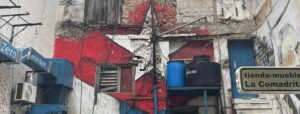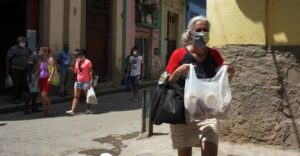By Geoff Thale
On Friday, October 14, the AP reported that the Obama administration had offered to let Rene Gonzalez, the member of the “Cuban Five” who was recently released from prison, serve his three years of probation in Cuba rather than in Florida, in exchange for the release of Alan Gross. Conservative commentators like Council on Foreign Relations’ Elliot Abrams and the Washington Post’s Jennifer Rubin have been outraged. Senator Marco Rubio is now threatening to hold up the nomination of a new assistant secretary of state for Latin America over the issue.
It’s a little hard to see this as more than political theater. The proposal, as the AP reported it, was not exactly giving away the store to the Cubans. It would have traded Gross—a year-and-a-half into a fifteen-year sentence—for Gonzalez, who was out on probation already after having served thirteen years in prison. According to the AP story, the United States proposed the Gross-Gonzalez exchange and offered to discuss certain issues, though not necessarily to make changes on those issues. (See this report of the modest list of offers from the U.S. side, which includes improving postal exchanges and licensing Pernod Richard to sell Havana Club rum in the United States.) The attacks on the proposal, and the suggestion that we should instead cut back the freedom of Cuban-Americans and others to travel to Cuba, seem to come from people less concerned about freeing Alan Gross and more concerned about advancing their own hard-line political agenda. (We commented in an earlier analysis on this discouraging tendency to invoke Alan Gross in order to justify a hard-line strategy, which is likely to keep Gross imprisoned.)
The political theater continues in the United States, endangering the appointment of a competent, professional diplomat as assistant secretary of state. This sideshow is probably prolonging Alan Gross’s stay in a Cuban cell, but it’s worth taking a minute to gauge what is going on in diplomatic negotiations between the United States and Cuba.
As noted above, the offer to the Cubans was a modest one. It’s no surprise that Cuban authorities rejected it. Let’s hope that the process of negotiating a prisoner exchange hasn’t come to an end and that behind all the rhetoric, discussions are continuing. Meanwhile it’s worth remembering that U.S. policymakers are dealing with a government whose own internal politics may be as complex and fraught as our own. Despite what many believe, it isn’t as if Raul Castro could simply wake up one morning and decide to free Alan Gross.
Consider the trajectory of Cuban elite opinion on this subject.
While Cuban public opinion isn’t the force that U.S. public opinion is, it does exist. And beyond broad public opinion, elite opinion matters significantly in Cuba—the leadership circles in the country are relatively small, and what military leaders, the intelligence community, the Party’s senior leadership, and high-level government officials think has a real impact. Among elites in Cuba, there are—not surprisingly—differing views about the pace and direction of political and economic changes.
There’s little doubt that when Gross was first arrested most people in the Cuban leadership endorsed the idea that the actions of Gross and others like him were both a threat to state security and an affront to Cuban sovereignty, and the general view was that his release should only come in the context of a trade for the “Cuban Five.”
At the time of President Carter’s visit to Cuba this past March, there were reports that senior Cuban officials were open to the idea of releasing Gross on humanitarian grounds. Though they didn’t feel that Gross “deserved” special consideration—from their point of view, he broke Cuban law as part of a larger U.S. effort to undermine the Cuban regime—there was not a major domestic clamor to keep him in prison. The legal process against Gross had run its course. Internationally, Cuba had made the point that it was capable of identifying and arresting foreigners who came to the island with what it viewed as subversive plans. The Cuban government seemed to feel that it didn’t have much to gain by keeping Gross in prison, and would rather have its diplomats involved in discussions about trade and investment with foreign partners than on Gross.
The U.S. politics around Cuba are complex. But Cuban politics around the United States are complex, too. When Governor Bill Richardson traveled to Cuba in September, and made high profile public statements about Alan Gross being held “hostage,” he probably refocused attention on the Cuban equivalent of a “hot button” issue. So when Cuban National Assembly President Ricardo Alarcon said that if the U.S. government wants to see Gross freed unilaterally, it “should get a good armchair and sit down to wait,” he was likely reflecting the shifting debate among Cuban political elites.
Let’s hope that the United States comes up with a better offer, that the issue becomes less red-hot in Cuba, and that the hardliners here don’t disrupt the quiet discussions that might find a way to bring Alan Gross home, and open the door to progress in U.S.-Cuba relations.
Geoff Thale is WOLA’s program director. Mr. Thale has studied Cuba issues since the mid-1990s and traveled to Cuba more than a dozen times, including organizing delegations of academics and Members of Congress.
(Photo by Gage Skidmore)


